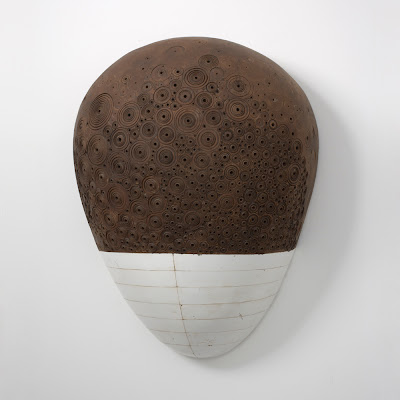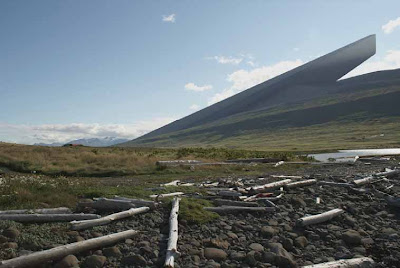-
Art Sites Show Images Are Up!
In News onImages from the Art Sites show are up at the main part of the site. Here are a few…
For the full photo sets, please click here, and click on PHOTOS at the top bar for Art Sites 2o1o Part 1 to 3. There are 47 images! Or, Hiroyuki Hamada Art at Facebook has an album with same images. They are smaller but load faster. Hope you like the images!
-
The Last Weekend For The Art Sites Show
In News onIt’s been a great few weeks having a show at Art Sites. The show turned out to be super
featuring the latest works as well as the oldest ones. Last week, we have also added nine
of my oldest drawings predating the plaster sculptures. You can see them in the office area.And, we have one more weekend to go! The show will be closing on Sunday the 10th. Here
are a few images from the show. More photos with large view options will be added to the
main part of the site in a few weeks.Here is how to get to Art Sites: Direction to Art Sites
Art Sites651 W. Main St.Riverhead, NY 11901631-591-2401hours: th-sun 12-5Please call for additional hours -
An Architect’s Angle
In News onOnce the work goes out of my studio, it finds new contexts and meanings
in viewers’ minds. It’s fascinating to hear what they see. Last March, I
enjoyed an architect, Saurabh Vaidya’s blog post that showed the work
through his rich, investigative mind. He just posted his second entry on
the work. Here are his 1st and the 2nd entry posted back to back:I came across works by two very interesting artists last week,
Nicolas Moulin who envisages ruins of mega monolithic concrete
blocks in a deserted landscape while the other being Hiroyuki Hamada
who designs comparatively small, vaguely futurist looking monoliths.





(Some of the many Hiroyuki’s tablets that could easily come to be a parts of totem pole
of a dystopian space age civilization, whose technological advancement has come at
the price of erosion of memory of history and language…where technology is god.
Images sourced from: http://acidolatte.blogspot.com/2010/02/hiroyuki-hamada.html?zx=883872d53fad4dd5)
Hiroyuki’s artifacts that seem to draw semantic nourishment from manga,
minimalism, space debris, Japanese Zen, Buddhism, God particles,
Shivalingam, crustaceans, Mars and brush by closely to Nicolas’s Béton
Brut work that sends roots to Normandy Bunkers, Corbusier, Oplismeno
skirodema, Berlin Wall, Moai, Rosetta stone, Noah’s Arc etc according
to me are not thriving on but are just the opposite. They are soil samples
of the very ground that anchors the tree of Being, from where all these
references germinate.



(Images of Nicolas Moulin’s collages sourced from Vulgare one can also find an online
blog recording by the artist and Amanda Crawley Jackson called Beton brut)
The ability of both these artist to have art works that spread roots
through history and simultaneously come across as being so basic
that it forms a part of Lebenswelt, the very ground of universality
which anchors the roots of metaphysics, to be understood in equal
ways by every member of the human race is according to me the
true essence of their work.
Scale, texture and form, that is all to it, as wise old university
stalwarts would put it, which according to me has more truth to it
than the combined cacophony that we seem to have inherited from
the circus that was post modernism and these two artists working
independently in different circles and continents seem to echo just
that. The simplicity of works is refreshing and it just looks very
very sexy.Lebenswelt appeared at Urban Floop on Sundy, March 28, 2010
Here is his second post:
During my early days in architecture all of us during a brief phase
had taken to worshipping Tadao Ando, which secretly we still do in
some obscure corner of naivety unpolluted by the realisation that
it cannot be that simple, life is far more complicated, filled with
contradictions that need to be represented in our spaces, objects,
skews and corners. Ando had been popular for quite sometime
then but it was during my first year in Architecture that he built
Church of the Light a building that worshipped space, made
concrete an inch more beautiful than what the modernist had left it
as and we drooled.

It is this rich simplicity that draws me to Hiroyuki’s work of which I
have written before. Hiroyuki will be exhibiting three new pieces in
his next show at Art Sites, a gallery in Riverhead, NY. If you are
the lucky few around do visit…I personally would like to see the
scale of these objects…and if they open up like loosely held 3d
jigsaw puzzles, or do they crack like egg shells, are they hollow
or filled with a heavy fluid, is there a temperature difference in the
blacks and whites, browns and greys…I guess I will definitely be
banned from entering the gallery or his workshop!
I hope the art work sells and and pray definitely not to clients who
would use it as bourgeoisie conversational props with their boring
guests in plush living rooms with matching minimal aesthetics.Hiroyuki appeared at Urban Floop on Saturday, August 14, 2010
-
3 New Pieces in the Next show
In News onLast year, my painter friend Darlene Charneco kindly introduced my work to
people at Art Sites, a gallery in Riverhead, NY. They actually liked the work
enough to do a show. And it’s coming up!The town of Riverhead is located at the northern part of eastern Long Island,
NY. It’s a rather big town for the area with its set of county buildings. It can
also be beautiful with the river going nearby and it’s got an aquarium
(Atlantis Marine World) where I take my kids. The town is not fancy at all like
some of the summer spots in the Hamptons. It’s sort of rustic, can be seedy,
sort of reminds me of towns I’ve seen in Weird NJ. OK, it’s sort of weird and
it’s been making me want to find out more about its curious nature. It’s an
intriguing place where I would want to walk around with my camera. In short,
I like the town.The gallery is run by an architect couple, Glynis Berry and Hideaki Ariizumi,
who converted a Jeep dealer building, basically with their bare hands into
three gallery rooms and their architect office. The ground also includes a
park-like outdoor exhibition area facing the river. It’s very nice. In addition
to their regular gallery schedules, they’ve been opening the space for various
community activities, and this year they had their 2nd annual Peconic River
Festival. And this is not their first gallery space. They have a quite followings
since their Greenport gallery era (Their first gallery space was located in the town
of Greenport where they still reside). They’ve been known in the area to put up
solid shows. It’s really generous of Glynis and Hideaki to let me be part of their
programing. Thank you so much.I’ve been looking forward to seeing how my work will interact with their rooms
(101, 101 and 102A). Also, I’m excited to show three new works which I’ve been
working on for the past years. One of them (#63) appears in the announcement
above. More images of #63 along with images of #56 and #69 will be added shortly
to the main part of the site. The show will likely include over 10 pieces and I will
post details as we get closer to the opening.Here is an excerpt from Art Sites’ press release:
Hiroyuki Hamada’s works are monumental in impact, but built with delicacy.
They are filled with an unknown spirit. There is no direct reference, but one can
read the mysteries of the ancients or the mapping of a digital age in their rich
surfaces. The forms hold space, rather than make it. Tension pervades, as each
mark and tone tell a story of perfection, balance and upset. Hamada spends up
to three years creating the sculptures, as he applies plaster over burlap and
wooden forms. He then shapes and stains them with wax, resin, and paint.Hamada, at 18, moved from Tokyo to West Virginia, due to his father’s
involvement with the steel industry. Culture shock, language challenges,
and minority status were exacerbated by the parallel shift from an urban
to a rural lifestyle. In college, after starting in psychology, Hamada
became more enamored of art, especially after being exposed to the work
of Karl Jacobson. With a M.F.A. from the University of Maryland,
Hamada’s art transitioned from emotionally generated art, to a
fascination with the abstract, especially the interaction between
lines, colors, tones, and shapes in three dimensions.Hiroyuki Hamada has developed his work with the support of the
Pollock-Krasner Foundation, residencies at the Fine Arts Works
Center, the MacDowell Colony, the Virginia Center for creative
Artists, and the Edward Albee Foundation, and more recently, a
grant from the New York Foundation of the Arts.














